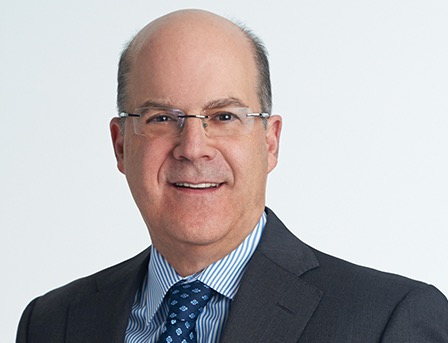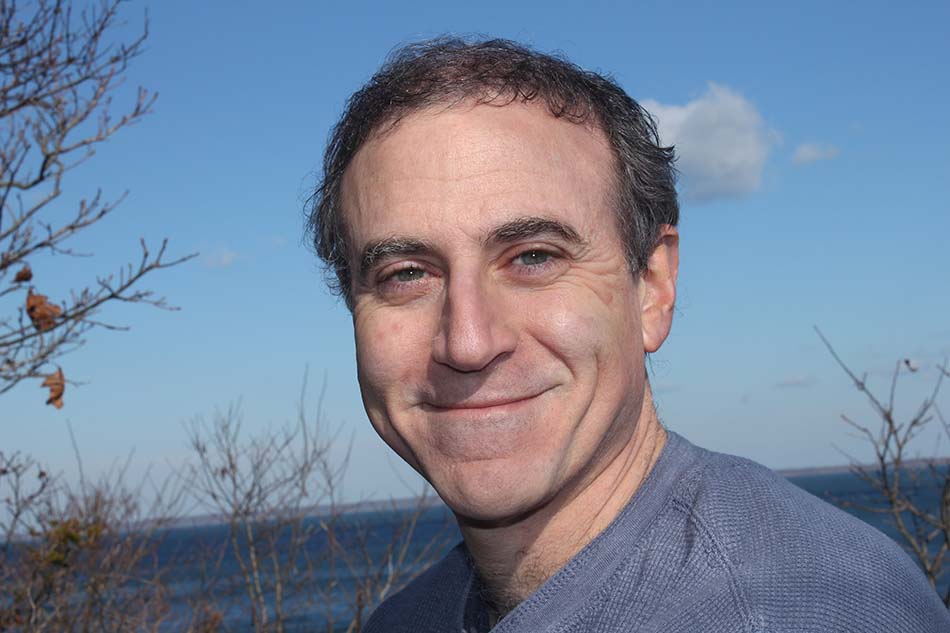Jeff Wachtel

The smarter way to stay on top of broadcasting and cable industry. Sign up below
You are now subscribed
Your newsletter sign-up was successful
Aaron Korsh was a self-described petrified “low-level writer,” getting ready for his first-ever pitch to a TV exec. He had a spec script for a series he hoped to do, and a set of writing partners who were unsympathetic to his butterflies. “They were joking around, saying, ‘Remember this one writer who really blew that pitch?’ I could hardly breathe,” Korsh remembers.
Luckily, the exec into whose office he was stepping was Jeff Wachtel, then copresident of USA Network. “I walked into the room, having never met him, and he was holding the script I’d written and he said, ‘Aaron, this is a great script. You are a great writer.’ The first words out of his mouth. It lowered my nervousness a million times and I thought, ‘This man isn’t judging me; he just wants me to do a great job.’”
Korsh saw that again at auditions for the show, which came to be Suits and ran for six successful seasons on USA. “I’d heard network auditions are very cold—it’s silent when the actor walks in and silent when they leave. But the first audition, the person came in and Jeff gave him an ovation; then everybody did. Every person who came in got an ovation. That was Jeff setting the tone. He wants you to do your best; he wants your voice to come through.”
In Jeff Wachtel’s line of work, that creative voice is the seed of everything, and he’s long been adept at listening to the subtleties that set the best ones apart.
It is what has made Wachtel one of TV’s most supportive, and, perhaps not coincidentally, successful shepherds of content. He’s also, as Rick Rosen, head of television for WME and a friend and collaborator going back decades, puts it, “one of the great creative executives in the television business for almost 30 years.”
What does “creative” mean in a business known for copycats? For one thing, an eye for talent unlike what’s already on the air. Wachtel’s eye led to an unprecedented run of popular series at USA (including Monk, Suits, Burn Notice and Psych) and continues now in his present job, with series such as the Golden Globe winner Mr. Robot. (When Rami Malek won his best actor Emmy for the show last month, Wachtel was one of the first people he thanked, alongside his boss, Bonnie Hammer.)
Wachtel achieved unparalleled success at USA—TV’s No. 1 entertainment cable network for seven-straight years under his guidance—and cemented his reputation for being what Burn Notice creator Matt Nix calls being the best kind of coach. Nix credits Wachtel for pushing him to make a good season-one finale that much better.
The smarter way to stay on top of broadcasting and cable industry. Sign up below
“A great coach knows when you’re holding back and hasn’t found it and says, ‘find it,’ and gives you enough of a guide to get there. That’s what [Wachtel does],” he says.
Adds Psych creator Steve Franks, “Because he comes from the theater and because he’s a creative person himself he loves fostering creativity, he was willing to let us follow our muse and guessed that we knew what we were doing and that’s amazing.”
Wachtel’s roots had been theatre, forged by growing up in a house where his art gallery-owning mom took him to lots of Broadway shows. “It was a lot of support, and a lot of encouragement to be the best you can be,” he says of his youth. But he first heard those singular voices in college, getting a degree in drama at Yale, feeding off the energy of the seminal playwrights of the day, from Edward Albee to Harold Pinter and later Lanford Wilson. Then, while working at a small theater in New York City after college, someone brought in a play called Sexual Perversity in Chicago by an unknown writer named David Mamet that had had a workshop in the Windy City. Wachtel eventually became the writer’s first commercial theatre producer in New York.
“That was the start of my career. But it was the next step of what I’d done at Yale directing plays. If you have a great idea you’re passionate about, you just have to make it happen.”
Wachtel worked for Robert Cooper Productions, then Orion Television on the way to his post as VP of primetime TV at Columbia Pictures Television from 1990-96, where he was tasked with creating drama series and miniseries at a time where the sitcom was king. “TV movies were not a profit center,” he recalls about that era of Seinfeld and Cheers, when the company’s priorities included its own hit, Married…with Children. “I stepped into a place [where] the idea was to, ‘figure it out, kid.’”
Wachtel tuned that practiced ear, and found original voices, including Chris Keyser and Amy Lippman, and Kevin Williamson; with the former duo, Wachtel developed the cherished younger-demo hit Party of Five; with Williamson it was Dawson’s Creek. “Our strategy was to make shows with as little risk as possible, so we had unknown showrunners and young ensembles,” Wachtel says. “We got lucky…it was a wonderful lesson.”
He had 10 years of success at USA following a philosophy that harkened back to his off-Broadway experience. “It was the early days of basic cable,” he recalls. “We were working around the fringes, launching shows during the summer or on Friday nights.” In a sense, the guerilla methods of those days are suitably applied to the current multiplatform realities where the next great success is just as likely to be found on an app as in your living room. Wachtel is hyper-aware of this. The studios he now runs have produced 50 series, feeding a network portfolio including USA, Syfy, Oxygen, Esquire, E! and Bravo.
“My job hasn’t changed, the environment has,” he says. “It’s finding, with our network partners, the best vision of yourself as a linear network and bringing that to life. It’s always working with partners and trying to help the thing be the best version of itself.”
Rob has written for Broadcasting+Cable since 2006, starting with his work on the magazine’s award-winning 75th-anniversary issue. He was born a few blocks away from Yankee Stadium … so of course he’s published three books on NASCAR, most notably, Full Throttle: The Life and Fast Times of NASCAR Legend Curtis Turner. He’s currently the special projects editor at TV Guide Magazine. His writing has appeared in The Washington Post and his origami art has been in The Wall Street Journal. He lives with his family in New Jersey and is writing a novel about the Wild West.

